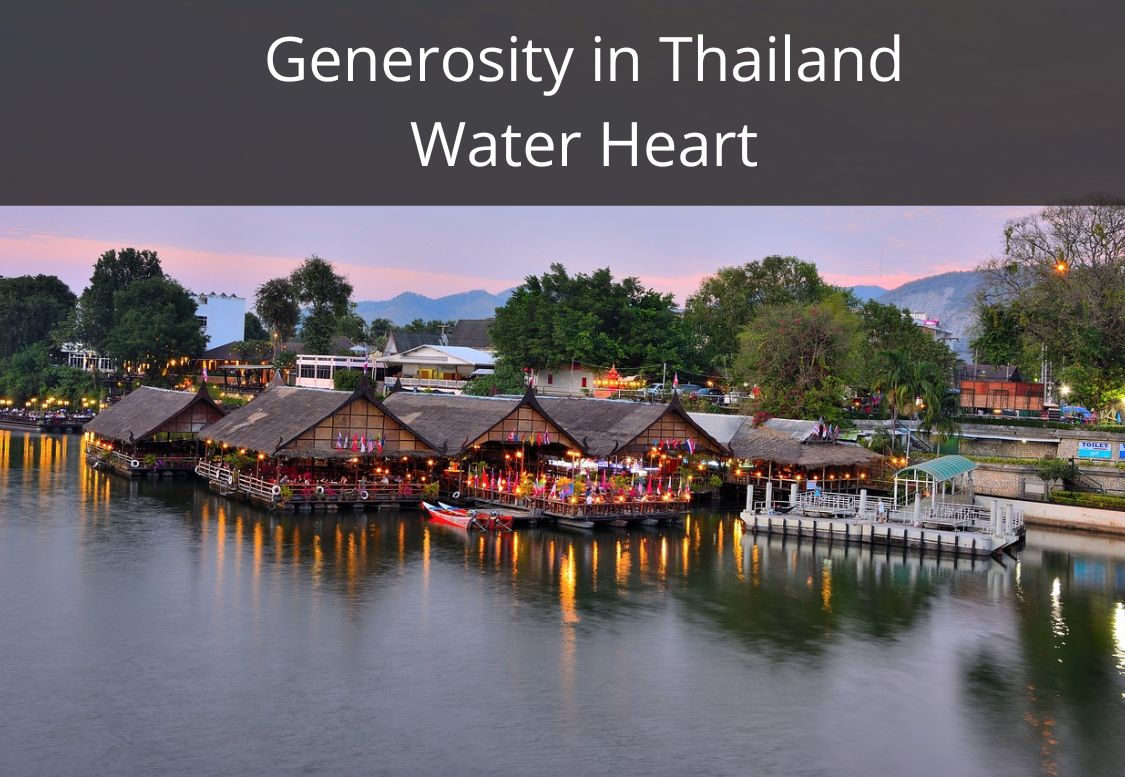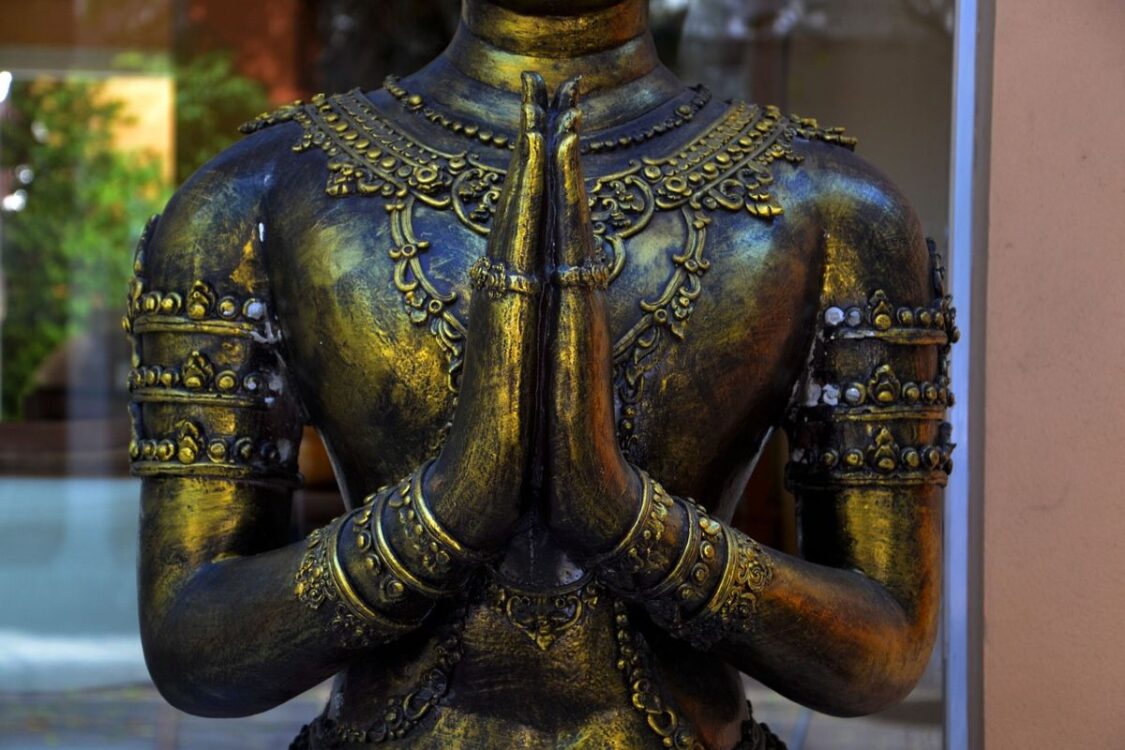Generosity in Thailand: Having a Water Heart (Nam Jai)

The Thai word for generosity is “kwaam mee náam jai” (ความมีน้ำใจ), which means to “have a water heart”. In Thailand, water is a symbol of abundance. The water in the fields produce rice, and the water in the rivers produce fish. To have a “water heart” thus means to have a heart that creates abundance. It also means to have a flowing (easy come, easy go) heart, where abundance is generously shared.
For example, a recent viral Tik Tok video in Thailand shows a fisherman catching a bunch of tilapia with a harpoon gun. He is fishing from a boat in the middle of a wide canal. When he paddles back, he notices the fishermen on the shore (using traditional Thai fishing equipment) have not caught anything. So he keeps one fish to eat for dinner, and shares the rest with the other fishermen.
The generosity of the Thai people doesn’t get talked about enough, compared to the negative talk you often encounter on expat forums in Thailand. There is endless commentary on Thai women who view foreign men as “walking ATMs,” tourist attractions with dual pricing policies, petty thefts at resorts, and more.
While there is an element of truth to many of these tales, what you rarely hear told are the stories of Thai generosity (because most expats go to online forums to complain and commiserate, rather than share positive stories of Thai culture).
The Generous Thai Nature
In my 20+ years in Thailand, I’ve witnessed and experienced countless acts of Thai generosity, such as Thai teachers giving personal loans (from their own bank accounts) to new foreign lecturers; taxi and tuk tuk drivers returning a phones and wallets left in vehicles; Thai officials overlooking or “fixing” some problem in your paperwork; rural Thai monks offering hand-made gifts to visitors; Bangkok bar workers giving free food or medication to elderly patrons with sudden health problems; etc.
I was reminded again of Thai generosity when some hardware attaching the storage bin to my motorbike fell off during a ride. I decided to visit a small, ramshackle bike shop filled with boxes of junk. I’d never been there before. An old Thai mechanic spent 30 minutes cutting and grinding spare screws and parts to reattach the bin. When I asked how much, he gave me that famous Thai smile and said: “Mâi bpen rai, hâi free aa-jaan” (Don’t worry about it. Free for you, ajarn). How he guessed I taught at a university, I do not know.

Receiving Generosity from Thai People
So, what are we make of those expats in Thailand who have recurring bad experiences? I think it relates to two things. The first is a lack of gratitude, or (to be more precise) a grateful spirit. While it often isn’t recognized, having a grateful spirit, increases your likelihood of being the recipient of generosity wherever you live.
Thailand expats who have a grateful spirit show their gratitude for being allowed to live here by assimilating into Thai culture, which means learning some of the Thai language, dressing conservatively and appropriately, performing the wai properly, respecting the basics of Buddhism, refraining from arguing, staying light-hearted, being greng jai, helping others save face; etc.
Many foreigners who live in Thailand never assimilate into Thai culture. They stay isolated in their expat communities, while at the same time bemoan the lack of assimilation among immigrants to their home countries. The irony of this seems lost on them.
How Reciprocity Informs Thai Generosity
The second thing Thai generosity is connected with is reciprocity. Too many expats in Thailand have a rather crude view of reciprocity. They mistakenly believe that if they toss around a lot of money, this should earn them respect and gratitude in return. They then are shocked when they attract Thai people who actually will take advantage of them and treat them like a walking ATM machine.
Thailand traditionally has had a more refined attitude toward reciprocity, which again is informed by Buddhist traditions. In the Thai language, reciprocity is called dtàwp taen sêung gan láe gan (ตอบแทนซึ่งกันและกัน), which means mutually rewarding.
The act of giving (aka generosity) is viewed as a happy occasion for both the giver and the receiver, because it makes the giver feel good, while the receiver gets something good. In addition, by giving generously, we create greater abundance for ourselves in the future, because we reap what we sow — not always immediately, but sometime.
In other words, the more you give (in the spirit of gratitude) to the Thai people, the more you will get from them and the universe.
- Affirmations in Buddhism & Thailand - June 7, 2025
- Speak Thai Naturally Without the Gymnastics - April 20, 2025
- The Best Learn Thai Podcast and YouTube Channel - April 10, 2025




